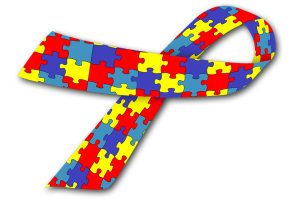Sticks and stones my break my bones, but names will never hurt me.” So goes the old children’s rhyme, but not so purports recent research on bullying, published in the Lancet Psychiatry, a British medical journal.
This study reports that bullying of children by their peers may have more prolonged and profound deleterious effects than parental abuse. No, this doesn’t give a pass to parents. Parental abuse of children does not lose its negative effects simply because bullying by peers might be even worse.
Bullying can be teasing, spreading rumors, name calling, intimidating, mocking, excluding an individual from a group, threatening, physical pushing even to point of physical harm. It can also be disturbing or taking others belongings. What is indicative of all these behaviors is a disrespect and an objectifying of the person being bullied.
Bullying is aggressive and mean spirited behavior in response to another person’s uniqueness. All sorts of “reasons” are exploited in the service of the bully: racial, sexual, religious differences; disabilities; weight; appearance; dress; the list goes on.
I clearly remember being bullied as a child. For a brief time it was from some fourth-grade girl classmates. By fifth grade, I had changed enough not to care to be in their cliques. The shunning stopped. What was more prolonged for me, however, was a set of boy relatives who called me names —“fatty bumps” was one — whenever I would see them at their grandmother’s house. No one ever corrected them; no one told them to stop the abuse.
That may be one of the insidious problems of bullying. The bully’s behavior, if not condoned, is tolerated (perhaps because the bully is giving voice to feelings still held by secretly by adults). Meanwhile, the victim is expected to “toughen up.” After all, it wasn’t sticks or stones, right?
Well, actually, there is a lot wrong with bullying. While parental abuse of children has been known to have deleterious effects into adulthood, it is now apparent that bullying of children can have an even greater effect, causing depression and anxiety and feelings of low self-esteem into adulthood. Names do hurt and leave more scars than do stones.
* Kayta Curzie Gajdos holds a doctorate in counseling psychology and is in private practice in Chadds Ford, Pennsylvania. She welcomes comments at MindMatters@DrGajdos.com or 610-388-2888. Past columns are posted to www.drgajdos.com
About Kayta Gajdos
Dr. Kathleen Curzie Gajdos ("Kayta") is a licensed psychologist (Pennsylvania and Delaware) who has worked with individuals, couples, and families with a spectrum of problems. She has experience and training in the fields of alcohol and drug addictions, hypnosis, family therapy, Jungian theory, Gestalt therapy, EMDR, and bereavement. Dr. Gajdos developed a private practice in the Pittsburgh area, and was affiliated with the Family Therapy Institute of Western Psychiatric Institute and Clinic, having written numerous articles for the Family Therapy Newsletter there. She has published in the American Psychological Association Bulletin, the Family Psychologist, and in the Swedenborgian publications, Chrysalis and The Messenger. Dr. Gajdos has taught at the college level, most recently for West Chester University and Wilmington College, and has served as field faculty for Vermont College of Norwich University the Union Institute's Center for Distance Learning, Cincinnati, Ohio. She has also served as consulting psychologist to the Irene Stacy Community MH/MR Center in Western Pennsylvania where she supervised psychologists in training. Currently active in disaster relief, Dr. Gajdos serves with the American Red Cross and participated in Hurricane Katrina relief efforts as a member of teams from the Department of Health and Human Services' Substance Abuse and Mental Health Services Administration.Now living in Chadds Ford, in the Brandywine Valley of eastern Pennsylvania, Dr. Gajdos combines her private practice working with individuals, couples and families, with leading workshops on such topics as grief and healing, the impact of multigenerational grief and trauma shame, the shadow and self, Women Who Run with the Wolves, motherless daughters, and mediation and relaxation. Each year at Temenos Retreat Center in West Chester, PA she leads a griefs of birthing ritual for those who have suffered losses of procreation (abortions, miscarriages, infertility, etc.); she also holds yearly A Day of Re-Collection at Temenos.Dr. Gajdos holds Master's degrees in both philosophy and clinical psychology and received her Ph.D. in counseling at the University of Pittsburgh. Among her professional affiliations, she includes having been a founding member and board member of the C.G. Jung Educational Center of Pittsburgh, as well as being listed in Who's Who of American Women. Currently, she is a member of the American Psychological Association, The Pennsylvania Psychological Association, the Delaware Psychological Association, the American Family Therapy Academy, The Association for Death Education and Counseling, and the Delaware County Mental Health and Mental Retardation Board. Woven into her professional career are Dr. Gajdos' pursuits of dancing, singing, and writing poetry.
- Web |
- More Posts(250)



Comments